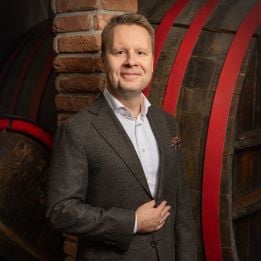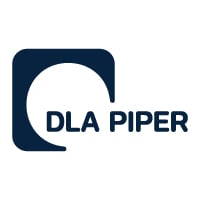

Group general counsel | Olvi Group




Esa Hyttinen
Group general counsel | Olvi Group
What are the projects that you are most proud of working on over the past 12 months?
We in the Olvi Group introduced an inspiring and ambitious revised strategy a year ago that focuses on profitable growth and is powered by our people, sustainability, data and our broad product range of iconic brands. We want to be the most wanted multi-local beverage house and offer ten million moments of enjoyment every day. For my part, I saw this as an exciting and excellent opportunity to ensure that the legal operating model and all legal, compliance and risk management matters come together fully aligned when we, e.g., design new common end-to-end processes to the Group or select tools to use data as an accelerator.
Seamless and robust governance in the areas of legal, compliance and risk offers the basic backbone for operations for any listed entity, but when designed and implemented perfectly, it also brings a lot of potential for efficiency when e.g. people in sales are able to fully focus on customers and growth.
In my opinion, lawyers also play a central role in driving the strategic agenda with digitalisation. I cannot emphasise enough the importance of having all information owned by the organisation and making sure that common contract compliance principles are applied across the Group. In my view, this is the elemental foundation in order to be successful with any future data and AI initiatives. Together with my fellow lawyers, we leverage our extensive multi-local heritage and knowledge of all our home markets. Our Group includes the oldest brewery in the Baltics, the Latvian Cesu Alus (established in 1590), and other breweries established in the 19th century, such as Olvi in Finland (1878), A. Le Coq in Estonia (1807), Volfas Engelman in Lithuania (1853), Lidskoe Pivo in Belarus (1876) and Vestfyen in Denmark (1885).
I believe these above concepts and thinking around data also apply to sustainability and its connection to enterprise risk management. In Olvi Group it is at our core to do good and ensure respect for our environment – the planet, people, and communities impacted by our operations. Expectations for risk management have increased due to recent regulatory initiatives, such as CSRD in sustainability and NIS2 in cybersecurity. These initiatives require multidisciplinary competence from various business and support functions.
When executing this kind of transformative initiatives, the selection of correct technologies and allocating funds to investments carries a long tail of consequences and financial impacts. Moreover, the viewpoint and aim should always to be to ensure that the Group is on top of relevant regulatory initiatives from the EU or national legislators. One must be proactive in expressing one’s views transparently through trade associations and other accepted channels already in the drafting phase of the new piece of regulation to be able to drive sustainable and industry-friendly outcomes.
Olvi Group’s ambitious agenda and revised strategy of course includes evaluating both organic and non-organic pockets of growth. Being able to be part of internal and external teams and to give sparring and constructive legal views in these has been rewarding also from personal development’s point of view as well as finding solutions for transaction structures in potential local and strategic mergers and acquisitions.
Finally, our legal function’s role has been vital in providing the best and most easily digestible strategic advice for the business. As we navigate complex and ever-evolving topics, we must learn together and ensure our professional development – while always keeping a positive mindset and having fun at work.
How do you approach managing legal aspects during periods of instability or crisis to ensure the organisation’s resilience?
I think organisation’s preparedness and resilience are not something one can build overnight but it usually comes in different-sized increments over time. Correct choices must be made in daily life as part of normal operations. At Olvi, we are a heavily value-led organisation, but values are just words without everyday actions to make them a reality. The same applies to compliance; it also requires repetition and discipline in order to be rooted in the company culture.
In my former and current legal positions, I have always tried to pay attention to what are the most essential legal and compliance capabilities our organisation needs today and tomorrow. One can for instance make a quick desktop exercise by mapping all the current “legal offerings” and then consider whether there are evident gaps against business priorities or volumes. Sparring discussions with all stakeholders within the company are also super helpful in bringing new ideas – and having a network of colleagues in other companies often adds value and objective views.
When it comes to managing the legal aspects, visibility and access to information are essential. Clarity and tangible data points are needed in order to make informed decisions. One must also consider how to access any critical documents and key people, should any extraordinary circumstances arise. Crisis and incident management processes should be harmonised to the extent possible, although e.g. privacy, cybersecurity or operational crises tend to have their bit of their own characteristics. Certain uniform practices are invaluable, because when a crisis kicks in, there is no time to waste for unrehearsed or too tailored admin routines.
Some organisations may focus only on contingency planning of business operations and critical infrastructure and applications. In my view, the same concepts should be applied to legal operations and one can for instance make scenarios to test if legal operations are crisis resilient. There are many suitable continuity planning and risk management frameworks that provide a good basis for this. I must again underline holistic thinking to cover the full map of legal offerings and capabilities, coupled of course with the Group’s core and strategic priorities. As with any other substance topic, legal risk scenarios need to be kept up-to-date and constantly rehearsed.
What do you think are the most important attributes for a modern in-house counsel to possess?
I would say curiosity, open mind and willingness to learn are the key attributes for any in-house counsel. One also needs to be very much into doing business, because one needs to work side-by-side with sales and delivery/production in order to build a trusted relationship as a counsel. By doing this, the internal stakeholders have a low threshold to contact you regardless of if the case at hand is a good or bad one.
The variety of topics an in-house counsel can run into is almost indefinite. Everyone understands that one person cannot be the most profound expert in all possible matters, but with the legal education and experience, representatives of the legal profession possess the ability to understand complex topics and translate them into compact and concrete legal advice. From the personal point of view, this requires agility and ability to endure uncertainty. Although there is always demand for deep substance understanding as well – and this seems to be the tendency with the increasing regulation – , in-house counsel should in my opinion hold a core nature of a generalist.
Personally, I have always thought that in-house lawyers have the privilege to be the ones to present the most elemental and “silly” questions no one dares to ask, but when being presented out loud, it increases everyone’s understanding about the topic at hand. This is something we all should remember to embrace without unnecessary worries about losing one’s face or professionalism. Needless to say, one needs to act in a humble and kind manner in any setting.
Regardless of the person’s age, in-house counsels are in my view always very respected and we are treated as senior colleagues whose opinions and viewpoints are being listened to. Lawyers are also known for their high integrity and ethics. Therefore, we have the responsibility to advise both with our legal knowledge and moral compass but also do our best to inspire stakeholders and help the teams to be excited and committed even in challenging tasks.
In respect to leadership attributes, I have personally been very intrigued by the concept of so-called servant leadership. To my knowledge, the term was originally introduced by the retired AT&T executive Robert K. Greenleaf in the seventies, but multiple studies and books have been written on it since and there are probably many different interpretations out there.
In essence, this leadership philosophy is built on the belief that the most effective leaders strive to serve others, rather than accrue power or take control. To me, the characteristics such as listening, empathy, awareness and building communities resonate well and are something that I am happy to see being widely brought to modern working life. In my opinion, this type of leadership style improves both profitability and efficiency but most of all the well-being and commitment of employees. The same attributes connect well with important aspects of diversity, equity and inclusion that I truly see as strategic imperatives for innovation, employee satisfaction and the company’s long-term success.